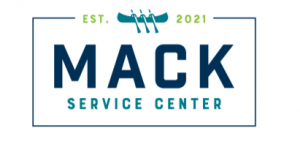Introducing Financial Advisor Woburn
In Woburn, Massachusetts, financial advisors at Trilogy Financial Services, such as Tom Elkins, Dale Sarpard, and Mohammed Siddiqui, are guiding clients towards financial success with personalized investment strategies. Leveraging their collective expertise and local market understanding, these advisors offer unique insights into maximizing investments.
Understanding the Woburn Investment Landscape
The economic landscape of Woburn offers diverse investment opportunities. Advisors like Tom Elkins, an Accredited Investment Fiduciary, emphasize the importance of understanding local market trends and how they can impact investment choices. With their finger on the pulse of Woburn's economy, these advisors tailor their strategies to leverage local strengths. Some of these Key Strategies and Insights from Trilogy Financial Advisors include:
- Collaborative Strategy: Emphasizing a team-based approach, Trilogy Financial ensures clients benefit from diverse expertise and financial planning woburn.
- Comprehensive Solutions: By pooling the knowledge of various advisors, the firm can offer more holistic financial plans.
- Enhanced Understanding: This approach leads to a deeper comprehension of each client’s unique financial situation.
- Complex Situation Management: The collaborative effort of the team allows for effective management of intricate financial scenarios.
Tailored Investment Strategies
Each investor's journey is distinct, and advisors at Trilogy Financial Services recognize this. Dale Sarpard, with his extensive experience, illustrates the importance of creating investment plans that align with individual goals and life stages. From retirement planning to wealth management, their strategies are as unique as their clients.
 Tom Elkins' Approach:
Tom Elkins' Approach:
- Emphasis on understanding local market trends for informed investment decisions.
- Advocacy for personalized financial planning tailored to individual goals.
- Specialization in retirement planning and wealth management strategies.
Risk Management Techniques
Effective risk management is a cornerstone of successful investing. Mohammed Siddiqui, known for his client-focused approach, underscores the significance of a well-diversified portfolio. By balancing risk and return, these advisors help clients navigate market volatility with confidence.

Mohammed Siddiqui's Methodology:
- Prioritizing client-focused risk management and portfolio diversification.
- Adapting investment plans to changing market conditions and personal life changes.
- Utilizing technology for real-time investment insights and efficient planning.
Future-Proofing Your Investments
Woburn's financial advisors are adept at adapting investment strategies to evolving market conditions and personal circumstances. They prioritize long-term sustainability, ensuring that clients' investments can withstand economic shifts and personal life changes.

Dale Sarpard's Expertise:
- Extensive experience in developing comprehensive financial plans.
- Focus on aligning investment strategies with life stage and financial objectives.
- Expertise in navigating complex financial scenarios for diverse client profiles.
Leveraging Technology for Investment Success
In today's digital age, technology plays a crucial role in investment management. Trilogy Financial Services utilizes advanced tools and platforms to provide clients with real-time insights and streamlined financial planning processes.
Conclusion
The advisors at Trilogy Financial Services in Woburn are committed to guiding clients through the complexities of investing. With personalized strategies, expert risk management, and sophisticated technology, they are equipped to help you achieve your financial goals. For those seeking to maximize their investments, consulting with these local experts is an invaluable step towards financial prosperity.
Ready to Amplify Your Wealth today?
If you're ready to elevate your financial planning with our professional team, we invite you to schedule a meeting with us. At Trilogy Financial Services, our advisors in Woburn are dedicated to crafting personalized financial strategies that align with your unique goals. Don't wait to start your journey towards financial success:
Schedule a Meeting: Reach out to us to arrange a one-on-one consultation with our financial professionals.
Give Us a Call: Prefer a quick conversation? Feel free to give us a call to discuss your financial needs and how we can assist. Call Us To Get Started. (844) 356-4934
Schedule a No-Strings-Attached Portfolio Review today and embark on a path to financial success guided by professional advisors. For more information and to schedule your consultation, visit www.trilogyfs.com/yourmoneyamplified. With the right knowledge and professional guidance, the journey of investing becomes an exciting venture towards achieving financial security and growth. This way, you're not just dreaming of an ideal retirement but actively working towards making it a reality.
*There is no guarantee that a diversified portfolio will enhance overall returns or outperform a non-diversified portfolio. Diversification does not protect against market risk.


